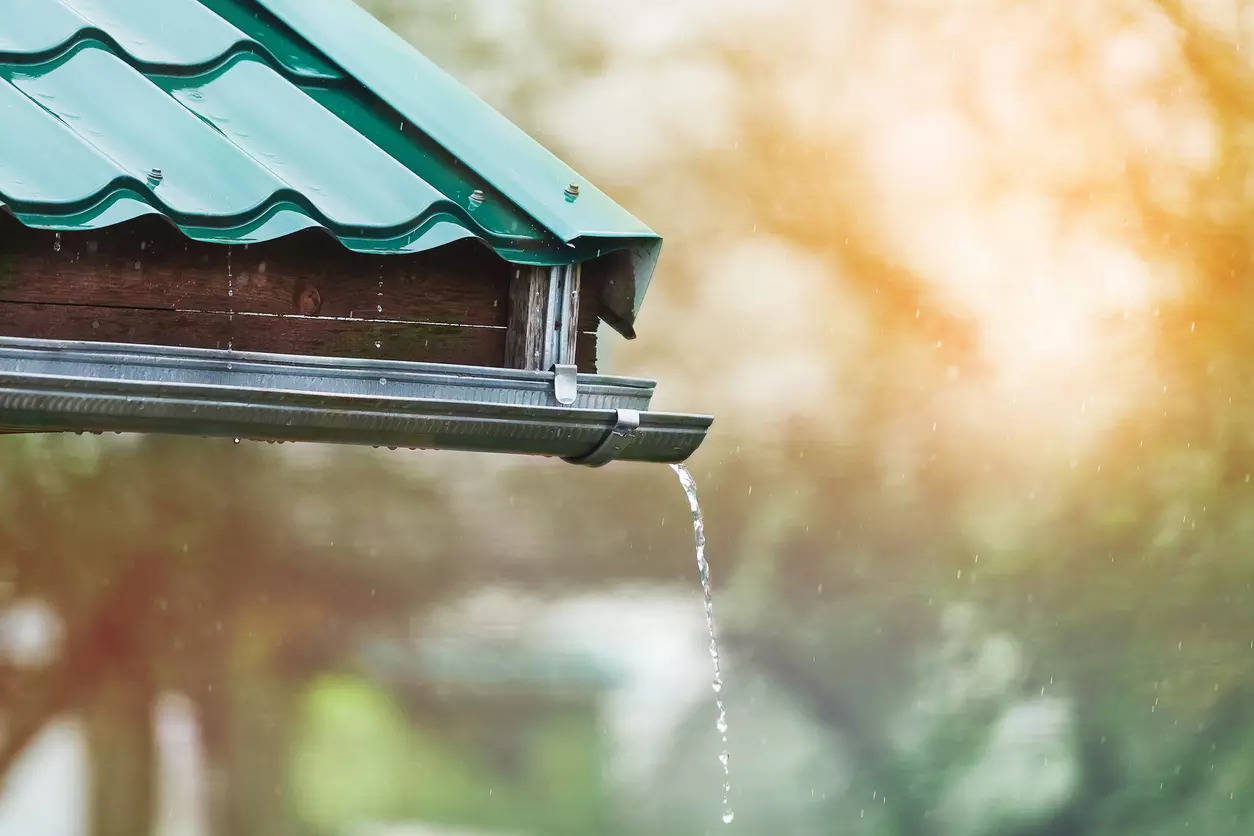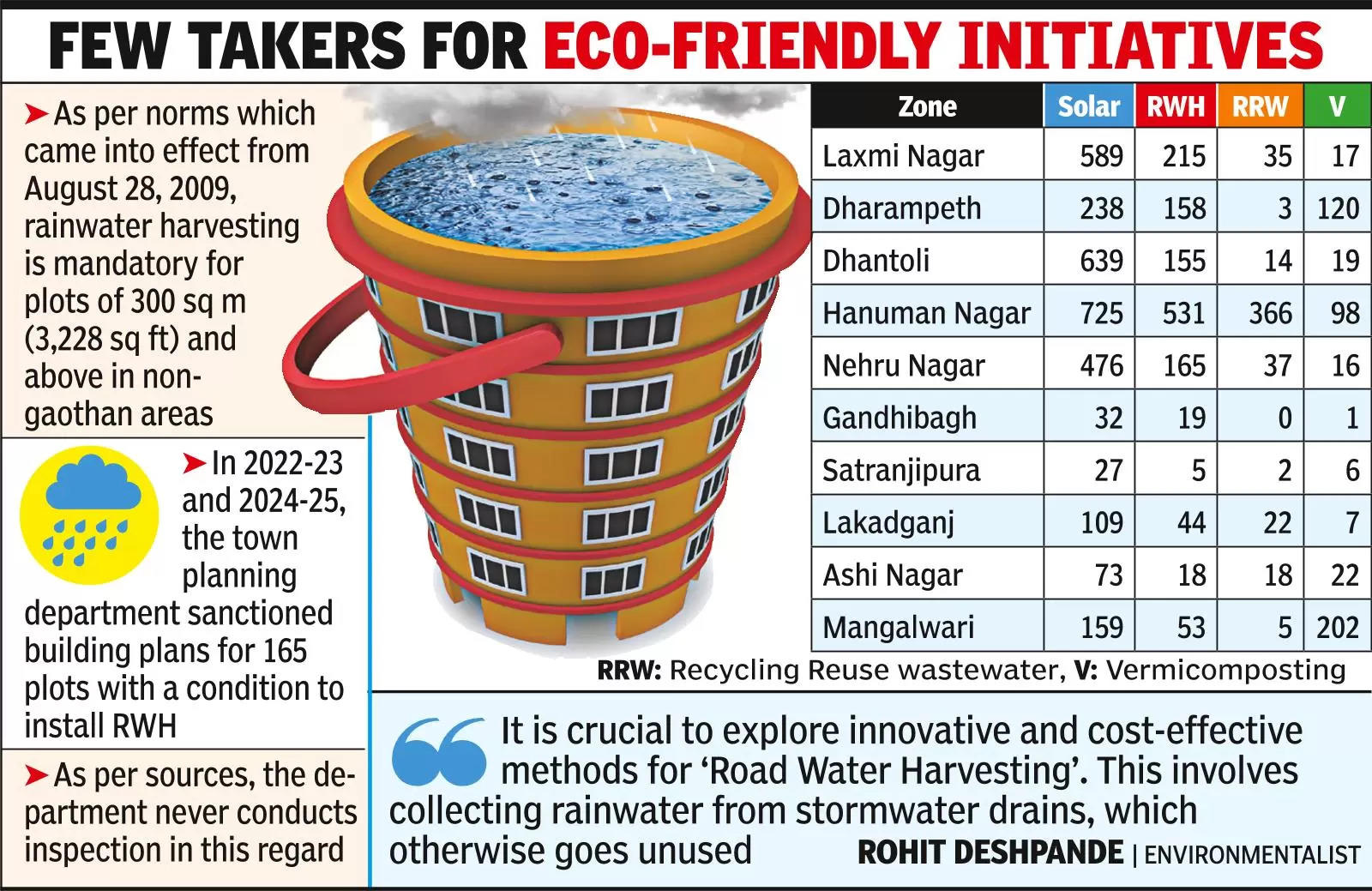- infrastructure
- 2 min read
Of seven lakh properties, just 1,363 harvest rainwater in Nagpur
As per data from NMC’s property tax department, 5,440 property owners or just 0.77% have implemented eco-friendly measures like RWH, solar energy use, wastewater recycling and reuse, and vermicomposting.
As per data from NMC’s property tax department, 5,440 property owners or just 0.77% have implemented eco-friendly measures like RWH, solar energy use, wastewater recycling and reuse, and vermicomposting. The data reveals that 3,067 residents have claimed 5% rebate for installing solar panels, 502 for recycle and reuse of wastewater and 508 for making vermicompost from garbage.
“By adopting four schemes like installing solar panels, RWH, wastewater reuse and developing vermicompost from garbage, these property owners became eligible for a 5% reduction in their property tax,” said deputy municipal commissioner (revenue) Milind Meshram.
As many as 531 property owners in Hanuman Nagar zone have implemented RWH, followed by 215 in Laxmi Nagar zone. In Satranjipura zone, only five properties have implemented RWH and 18 under Ashi Nagar zone.
As per norms which came into effect from August 28, 2009, RWH is mandatory for plots of 300 sq m (3,228 sq ft) and above in non-gaothan areas. In the last two financial year (2022-23 and 2024-25), the town planning department sanctioned building plans for 165 plots with a condition to install rainwater harvesting system. Sources, however, pointed out that the department never conducts inspection in this regard.

Environmentalist Rohit Deshpande said, “It is essential to adopt measures such as rejuvenation of lakes and water bodies to significantly boost the water table. Initially, RWH should be mandatory in all govt buildings, educational institutions, parks, hospitals, and universities, and extended to private entities like schools, hotels, restaurants, and malls.”
Former water works committee chairman and ex-corporator Vijay Zalke blamed the NMC administration for the low number of properties implementing ecological schemes, especially RWH.
During his tenure as chairman of water works committee for three consecutive years, Zalke had issued a slew of directives to his department and town planning department for improving the groundwater table. “As per suggestions, NMC was supposed to implement RWHs at traffic signals and gardens. Sadly, NMC has not taken efforts in this regard,” he said.
Deshpande stressed that it is crucial to explore innovative and cost-effective methods for ‘Road Water Harvesting’. “This involves collecting rainwater from stormwater drains, which otherwise goes unused. RWH should be made compulsory for all residential complexes. Nagpur must act promptly to prevent Bengaluru-like water crisis,” he said.
Municipal commissioner Abhijeet Chaudhari was not reachable for his comment.



COMMENTS
All Comments
By commenting, you agree to the Prohibited Content Policy
PostBy commenting, you agree to the Prohibited Content Policy
PostFind this Comment Offensive?
Choose your reason below and click on the submit button. This will alert our moderators to take actions